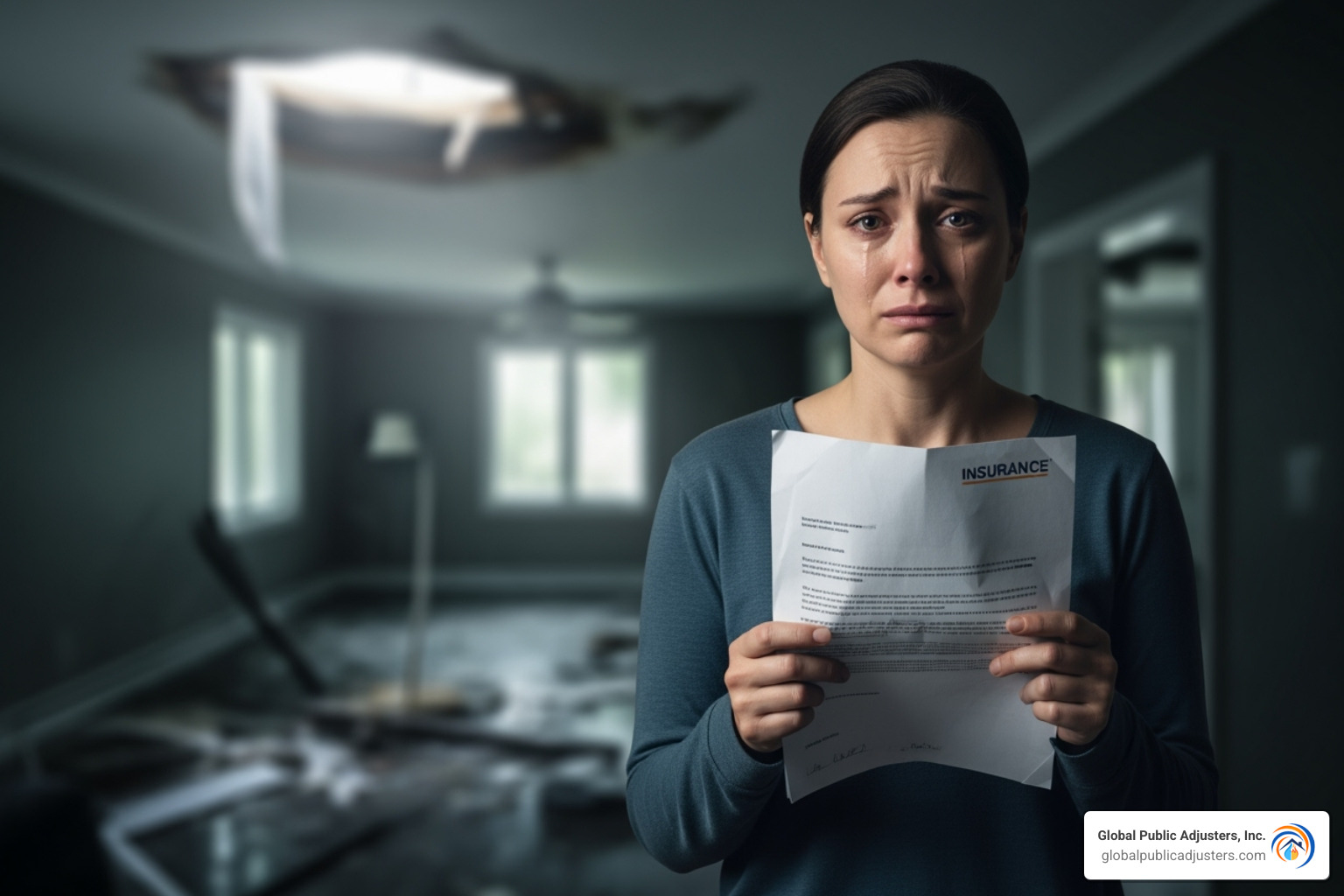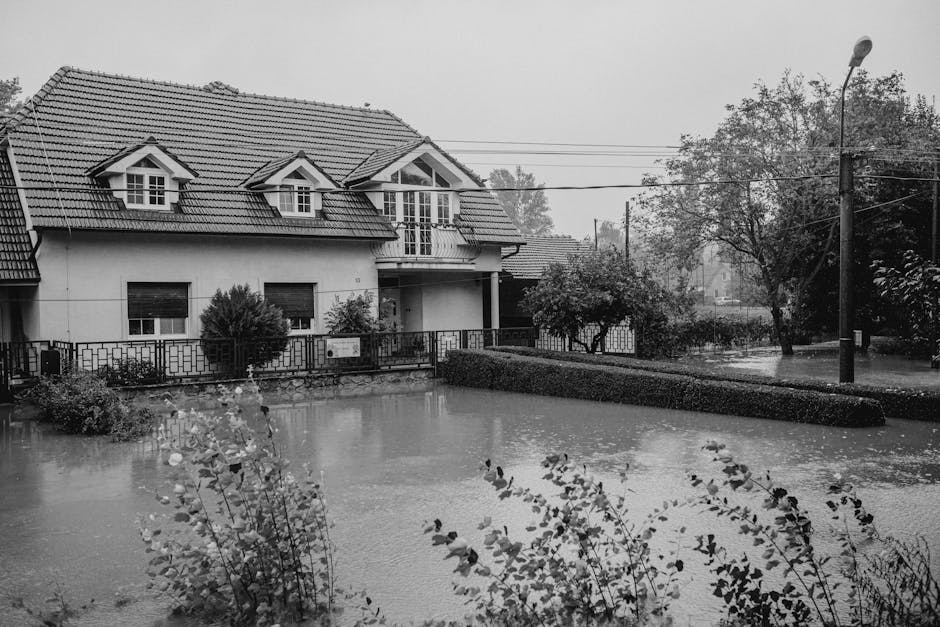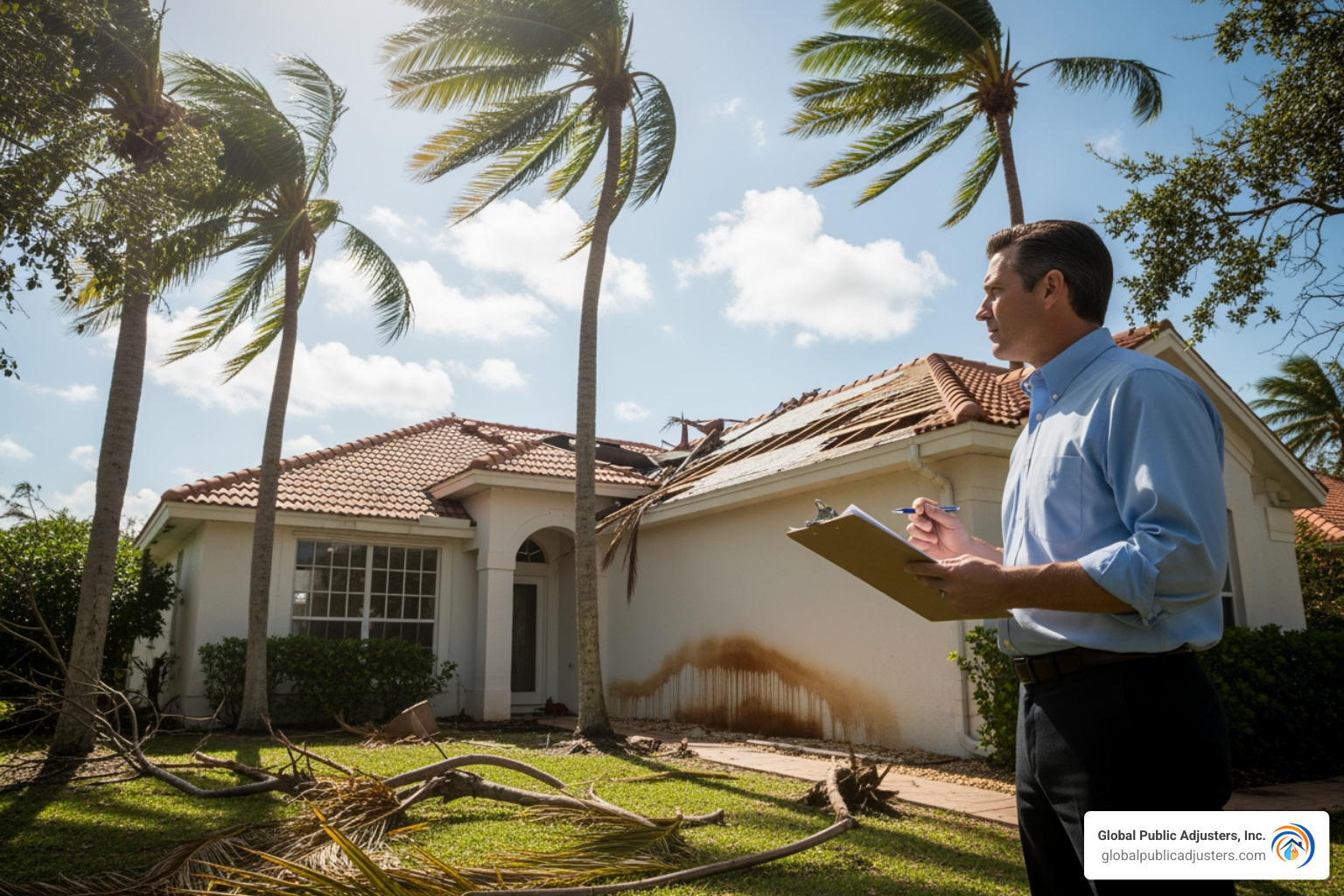Denied Insurance Claim: 3 Changes to Win!
Why a Denied Insurance Claim Doesn’t Mean Game Over
Adenied insurance claimcan be devastating, especially when you’re already dealing with property damage. But here’s what most policyholders don’t know:less than 1% of claimants challenge a denial, yet over 50% of those who do get results.
If your insurance claim was denied, take these immediate actions:
- Request a written denial letterexplaining the specific reasons and policy clauses cited.
- Review your policyto verify if the denial reason is accurate.
- Gather additional evidencesuch as photos, contractor estimates, and expert reports.
- Submit a formal appealwithin the timeframe specified in your policy (often 30-60 days).
- Consider hiring a public adjusterto negotiate on your behalf and maximize your settlement.
Insurance companies deny claims for many reasons—some legitimate, some not. Common grounds include alleged policy exclusions, insufficient documentation, or claims of pre-existing damage. This profit-driven motivation exists in Florida and across the United States.
The good news is that a denial is rarely the final answer. Research shows thatapproximately 60% of insurance claims are unjustly denied, yet most policyholders accept the decision. With the right strategy, you can challenge the decision and secure the compensation you deserve. The key is understandingwhyyour claim was denied and then making three strategic shifts in how you approach the appeal process.

First, Understand Why Your Claim Was Denied
Getting adenied insurance claimletter is frustrating. Before you can fight back, you must understand exactly why the insurer said “no.” The denial letter isn’t just bad news; it’s your roadmap to reversing the decision. Every detail matters, from the specific policy clauses they cite to the appeal deadlines.

Insurers deny claims because they believe they have a case under the policy that they don’t have to pay. Sometimes they’re right, but often they are stretching the truth to protect their profits. Your job is to figure out which situation you’re in.
The Critical Role of the Denial Letter
When your claim is denied, you must get that decision in writing. This is a legal requirement in most places. A proper denial letter does three things: it states the specific reasons for the denial, it references the exact policy language used to justify the denial, and it outlines the appeal process, including steps and deadlines.
Those deadlines are strict. Miss them, and you could lose your right to appeal. Many homeowners get so overwhelmed that they overlook these dates, only to find it’s too late to fight the denial. Read the denial letter carefully, highlight important sections, and note every deadline on your calendar. This document is your starting point.
Common Reasons for Property Claim Denials
Insurance companies are experts at finding reasons to say no. Some denials are legitimate, but others are questionable tactics to protect the insurer’s bottom line.
Misrepresentation or fraud:The insurer might claim you provided inaccurate information on your application or after the damage occurred. This can feel insulting, but it’s a tactic used to avoid payment.
Policy exclusions:These are specific things your policy doesn’t cover. Water damage is a common one; many standard policies exclude flood damage, sewer backups, or gradual leaks unless you purchased extra coverage. Similarly,wear and tear or maintenance issuesaren’t covered, as insurance is for sudden, unexpected damage, not for a roof that failed due to age.
Insufficient coverage:This means the damage is covered, but your policy limits aren’t high enough to pay for everything. You are responsible for the difference.
Late filing:Your policy requires you to report damage within a certain timeframe. If you wait too long, the insurer might deny the claim based on timing alone.
Lack of documentation:Insurers need proof—photos, receipts, contractor estimates. Without adequate evidence of the damage and its value, they will often deny the claim. This is why documenting everything is so critical.
Failure to mitigate damages:This means you didn’t take reasonable steps to prevent further damage after the initial loss. For example, if you didn’t tarp a damaged roof and more rain caused interior damage, the insurer might deny coverage for that additional damage.
Understanding which reason applies to your situation is the first step toward building a strong appeal. For a deeper look at why claims get denied, check out our guide onReasons Why Your Property Insurance Claim Can Be Denied.
Once you know why they said no, you can plan how to change their answer to yes.
The 3 Quick Changes to Appeal a Denied Insurance Claim
Your claim was denied. It’s frustrating, but this isn’t about accepting defeat—it’s about changing your approach. Adenied insurance claimfeels like a wall, but that wall has cracks. By making three strategic shifts in how you handle your appeal, you can often turn a “no” into a “yes.”
These are practical changes in mindset and action that level the playing field. Let’s walk through them.
Change #1: Shift from Policyholder to Project Manager
The first shift is mental: stop thinking of yourself as a policyholder waiting for answers and start acting like aproject managerrunning a critical operation. A project manager organizes, documents, and follows up—and that’s what your appeal needs.
Start bydocumenting everything: every phone call, email, and piece of mail. Log the date, time, who you spoke with, and what was said. If a conversation isn’t written down, it’s hard to prove it happened.
When you send important documents, usecertified mail with return receipt. This provides proof that your appeal was received and prevents the insurer from claiming they never got it.
Your denial letter includes deadlines, usually 30 to 60 days to appeal. As project manager, you’llcreate a timeline and stick to it. Set reminders and work backward from the deadline. Don’t wait until the last minute.
Organize all your evidencesystematically in a physical or digital file. This includes your policy, denial letter, photos, receipts, estimates, and all correspondence. Being organized means you’re always ready.
Most importantly,don’t accept “no” as the final word. Less than 1% of people challenge a denial, yet more than half who do get results. Insurance companies count on you giving up. Your persistence alone sets you apart.
Change #2: Re-evaluate and Reinforce Your Evidence for the Denied Insurance Claim
Manydenied insurance claimshinge on disagreements about facts. The insurer’s adjuster may have missed key details, undervalued your damages, or misunderstood the cause. This is your opportunity to build a stronger case.

Use the denial letter as a roadmap showing you what the insurer doubts, then address each point with better evidence.
If they dispute repair costs, getmultiple estimates from reputable contractors. Three estimates carry more weight than one. For an unbiased opinion, consider hiring an independent appraiser. The upfront cost can be worth it if it gets your claim paid.
For complex issues, you might needexpert reports. A structural engineer or restoration specialist can provide technical proof that turns your claim into documented fact. These reports have tremendous credibility.
Go through the denial letterpoint by point, gathering specific evidence to prove them wrong. If they claim wear and tear, find maintenance records. If they cite insufficient proof of loss, create a detailed inventory with receipts and replacement costs.
Photos and videos are crucial evidence.Date-stamped images of the damage can speak louder than words. If you didn’t take enough photos initially, document what remains and have your contractor photograph what they find.
Think of this as building a case file so thorough that denying your claim becomes harder than approving it. If your denial was based on the insurer undervaluing your loss, you might find helpful insights in our article onShould I Hire a Public Adjuster If I Have Been Underpaid?
Change #3: Escalate Strategically, Not Emotionally
While frustration is valid,emotion is your enemy when appealing a denial. A strategic approach is what wins.
Yourformal appeal letteris your most powerful tool. It should be a professional business document, not a place to vent. Maintain afactual tone. Reference the denial letter, quoting their reasons and cited policy clauses. Then, calmly explain why those reasons don’t hold up, using your policy language to your advantage.
Present your new evidence clearly. Explain what each document proves and how it refutes their reasons for denial. State your desired outcome plainly: you want the claim reopened, re-evaluated, and paid.
If the claims adjuster is unresponsive,escalate to their supervisor. Copy them on your formal appeal letter to signal you expect a higher-level review.
Most insurers have aninternal appeals process. While it’s the same company reviewing its own decision, it’s usually a required step. Be aware that some insurers use this to run out the clock on limitation periods, so always keep deadlines in mind.
If internal appeals fail, look outside the company. Yourstate’s Department of Insurancecan investigate complaints. While they can’t force payment, their involvement often prompts a more serious review. Some policies also offermediation or arbitrationas less expensive alternatives to court. Finally,legal actionmay be necessary, but be aware of strict limitation periods—often as short as one year.
The key is showing the insurer you understand the process and are prepared to pursue every avenue. This demonstrates you are informed, organized, and determined. For additional context, you can review thesegeneral steps for making a claim.
When to Call for Backup: The Role of a Public Adjuster
Navigating adenied insurance claimis complex, stressful, and the stakes are high. While the three changes we’ve discussed are empowering, there comes a point when professional backup is essential. This is where a public adjuster becomes your most valuable ally.

Insurance companies are businesses focused on profit, with teams of adjusters and experts working for them. As a policyholder, you deserve an expert working exclusively for you. A public adjuster is your specialist for denied claims, someone who knows the industry inside and out and fights only for your interests.
We live and breathe insurance policies.We understand the intricate language, loopholes, and exclusions. We can interpret your policy to ensure the insurer isn’t misapplying a clause to deny your claim, which is crucial when dealing with bad faith denials where an insurer unreasonably refuses coverage.
Our damage assessment is more thorough.We conduct our own evaluation, often uncovering losses the insurer’s adjuster missed or undervalued. We document every detail, from structural damage to personal property, building a comprehensive proof of loss that is critical for challenging a denial. At Global Public Adjusters, Inc., our 50+ years of experience in Florida means we know exactly what documentation is needed.
Negotiation is our expertise.We are professional negotiators who understand the tactics insurers use to minimize payouts. We effectively present your reinforced evidence and fight for the maximum settlement you are entitled to under your policy. We can also help identify if the insurer acted in bad faith, which may lead to additional compensation.
Our focus is on your best interests.Unlike the insurance company’s adjuster, we work for you. Our goal is to maximize your settlement so you can fully repair your property. Our advocacy levels the playing field against multi-billion dollar insurance corporations.
Finally, hiring a public adjustersaves you time and stress.Dealing with a denied claim is a full-time job. We offload this burden, handling all communication, paperwork, and negotiations. This allows you to focus on your family and recovery, providing peace of mind during a difficult time.
When you’re up against a large insurance corporation, it can feel like a David and Goliath battle. A public adjuster brings expertise, resources, and advocacy to your side. This is particularly important for significant losses where a denial can be catastrophic. At Global Public Adjusters, Inc., we specialize in turning denied claims into successful settlements. Learn more about theFour Advantages of Using a Public Adjuster to Battle Your Insurance Companyand see how professional advocacy can make all the difference.
Frequently Asked Questions about a Denied Insurance Claim
Facing adenied insurance claimbrings up many questions. With over 50 years of experience helping Florida property owners, we’ve heard them all. Here are the most common questions and our straightforward answers.
What information should be in an insurance denial letter?
A denial must be in writing; it’s a legal requirement. A proper denial letter must clearly state the specific reasons for the denial, referencing the exact policy language or exclusions that apply. It should not be vague. The letter must also outline your appeal rights, including the process and deadlines for challenging the decision. If your denial letter is missing these elements, you have the right to request a more detailed explanation. A weak denial letter often signals the insurer’s case isn’t as strong as they want you to believe.
What are the time limits for appealing a denial in Florida?
Time limits are strict and not flexible. Missing a deadline can mean forfeiting your right to appeal, even with a valid claim. Your insurance policy will specify the deadline for filing an internal appeal, which typically ranges from 30 to 90 days from the date on your denial letter. Check your specific policy immediately.
Beyond the internal appeal, Florida law has statutes of limitations for taking legal action. While some general periods are two years, many policies reduce this to just one year. That year can disappear quickly when you’re dealing with the stress of property damage. Our advice is to act immediately. Review your policy, mark all deadlines, and start your appeal. If you’re uncertain, contact a public adjuster or attorney right away.
What if my internal appeal is denied?
A second denial after you’ve appealed can feel devastating, butit is not the end of the road. Many policyholders give up at this point, which is what insurers often count on. This is the most critical moment to bring in professional help.
At Global Public Adjusters, Inc., we’ve seen countless cases where adenied insurance claimis overturned after we get involved. We conduct an independent, comprehensive review of your claim, the insurer’s reasons for denial, your documentation, and the policy itself. We often spot issues the insurance company overlooked, misapplied, or ignored.
With our 50 years of experience representing Florida homeowners and business owners, we know how to build a stronger case. We can find new evidence, present existing evidence more compellingly, and negotiate directly with the insurer on your behalf. A second “no” from the insurer doesn’t mean you’re wrong—it means they need more convincing. That’s what we do best. Let a denied internal appeal be your signal to bring in experts who work exclusively for you.
Don’t Let a Denial Be the Final Word
Receiving adenied insurance claimis a frustrating and scary experience that can leave you feeling powerless. But a denial is a roadblock, not a dead end. It’s an obstacle you can often overcome with the right strategy.
We’ve walked through the three strategic changes that transform your appeal into a compelling case. By shifting from policyholder to project manager, you take control. By reinforcing your evidence with independent appraisals and expert reports, you build an ironclad case. And by escalating strategically, you show the insurance company you’re serious.
These are proven strategies that help turn denials into approvals. Over 50% of people who challenge a denial get results—not by luck, but through persistence and strategy.
However, taking on an insurance company while dealing with property damage is overwhelming. You shouldn’t have to become an insurance expert overnight. This is why professional advocacy exists. At Global Public Adjusters, Inc., we’ve spent over 50 years representing Florida homeowners and businesses in these exact situations. We know the tactics insurers use and how to build cases that are nearly impossible to deny.
When you work with a public adjuster, you’re bringing in a skilled negotiator and an advocate who fights exclusively for your interests. We level the playing field so you’re not facing a billion-dollar corporation alone.
Your insurance policy is a contract. You’ve honored it by paying your premiums, and you deserve to have it honored in return. Don’t let a denial letter be the final word. Take control, strengthen your case, and know that experienced professionals are ready to stand with you.
Learn how to reverse a denied property claim by working with an expertat Global Public Adjusters, Inc.



